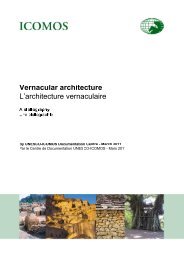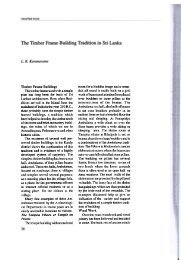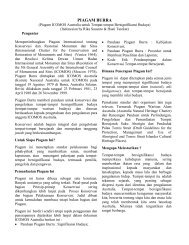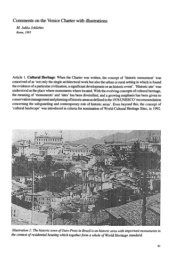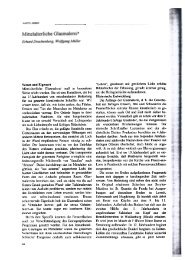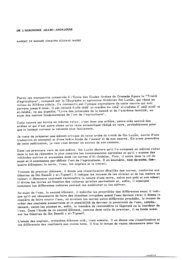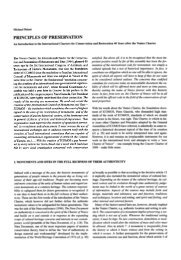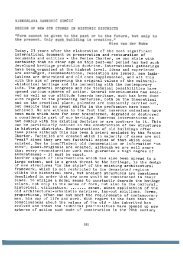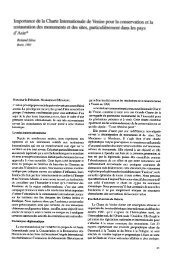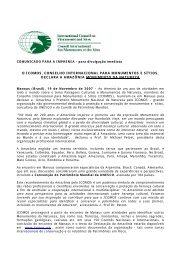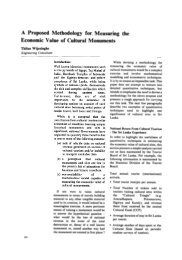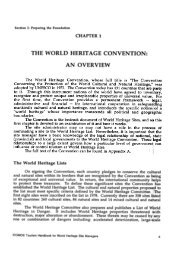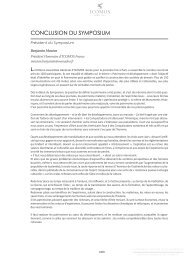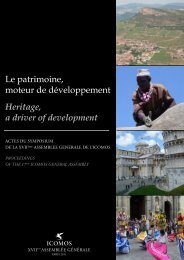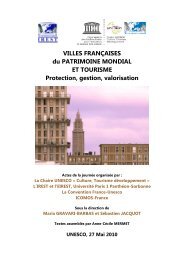PARTIE 2 - Icomos
PARTIE 2 - Icomos
PARTIE 2 - Icomos
You also want an ePaper? Increase the reach of your titles
YUMPU automatically turns print PDFs into web optimized ePapers that Google loves.
Theme 2<br />
Session 2<br />
REPORT<br />
Senior rapporteur<br />
Laura Robinson<br />
Cape Town Heritage Trust (ICOMOS South Africa)<br />
EFFICIENCY<br />
Junior rapporteurs<br />
Maie Kitamura<br />
Heritage Architect, Ecole de Chaillot, Paris (France)<br />
Gong Xuelan<br />
Department of Project Management, Shanghai Tongji Urban Planning and Design Institute<br />
(China)<br />
The second session of this theme was entitled ‘Efficiency’. The overarching issue addressed by most of<br />
the speakers was that of sustainability within the broadest context. Speakers presented both scientifically<br />
informed studies into the technical performance of materials as well as specific case studies.<br />
Much of the concluding debate focussed upon the challenges posed by the stringent regulations enforced by<br />
authorities relating particularly to issues of health and safety. The regulations, when applied strictly within the<br />
letter of the law to historic buildings, sites and structures usually have a severely detrimental impact upon the<br />
integrity of the heritage resource.<br />
We were reminded of an earlier ICOMOS resolution stating that considerations relating to energy efficiency<br />
should not prevail over heritage considerations; similarly the discussion regarding the possible formation of an<br />
ISC for ‘Energy efficiency and historic buildings’, proposed by Peter Cox (ICOMOS Ireland) during the course of<br />
the ADCOM meeting held in Dublin in 2010, was recalled.<br />
ICOMOS was requested to facilitate in the debate in this regard between heritage professionals and the<br />
various authorities. Ultimately the aim should be to convince the authorities that these regulations, which are<br />
imposed in terms of the building codes, be relaxed so that appropriate solutions and methods may be used<br />
when intervening in heritage buildings. It had been suggested that authority for many heritage building should<br />
be devolved to the local authority who may well be better placed to assess the appropriateness of traditional<br />
and vernacular building techniques in particular.<br />
In concluding the session it was agreed that heritage and sustainability are indeed mutually supportive. The<br />
point had been during the course of the session that heritage conservation is the only strategy that is socially,<br />
environmentally and economically responsible. The restoration and re-use of heritage buildings and structures,<br />
and the use of traditional materials and building methods had proven to be as, if not more sustainable than<br />
contemporary buildings and new construction materials. This had been clearly demonstrated in the various<br />
case studies made during the presentations.<br />
377<br />
LE PATRIMOINE, MOTEUR DE DÉVELOPPEMENT<br />
HERITAGE, DRIVER OF DEVELOPMENT



